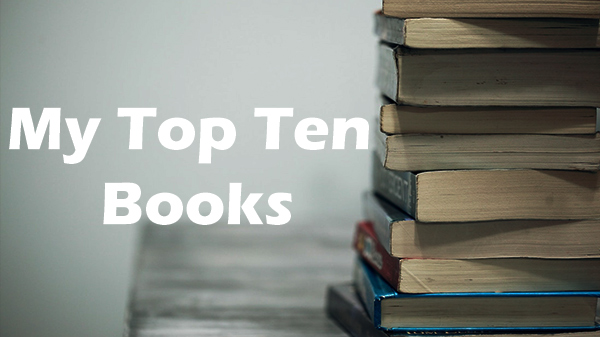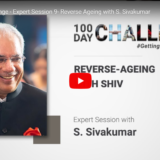My Top Ten Books

This list was prepared as part of the viral tagging going around on facebook J On popular demand, I’ve now described each book in hundred words.
e=mc2 by David Bodanis: Every one of you would know this equation. Bodanis offers the simplest of explanations I have ever heard of the relationship between mass and energy! “Mass is simply the ultimate type of condensed energy” and “energy is what billows out as an alternate form of mass under the right circumstances”. The biography of this famous equation is a fascinating read… If you’ve read my Blog on ‘Physics and ITC e-Choupal’, you will know why this book figures at the very top of my list.
The Agony and the Ecstasy by Irving Stone: Seeing the Sistine Ceiling in Vatican became one of my dreams, ever since I read this book in 1976. So powerful was Stone’s portrayal of Michelangelo! “He was determined to get a teeming humanity up on the ceiling, as well as God Almighty who created it; He must project a throbbing, meaningful vitality that would invert the universe; the vault would become the reality, the world of those looking at it would become illusion.” I eventually saw it some thirty years later J
The Fountainhead by Ayn Rand: This is one book in my list, I am sure, the majority of you would’ve read. And most people would’ve read it before they were twenty J Then you turn a Rand worshipper or a Rand hater; or turn from one to the other over time! One way or the other, the book is a great read as it lays out the scenarios for you if ever you were to turn against the world and its ways. Just yourself, all alone…
The Ascent of Man by Jacob Bronowski: An outstanding investigation and narration of the very civilisation as it evolved. It’s so absorbing to read how the man has become preeminent among all the animals. There is an interesting story about the genetic accident when wild wheat crossed with a natural goat grass to form a fertile hybrid; a subject of great interest now J This is how text books must be written for children; no reason why anyone wouldn’t stay curious for the rest of their lives.
Predictably Irrational by Dan Ariely: We think we’re all rational. “Are we?” questions Ariely, and sets up illuminating experiments to prove that we are not only not rational, but are also predictably so! He explains how expectations, emotions, social norms, and other invisible, seemingly illogical forces skew our reasoning abilities, and goes on to suggest how we could break through them to make better decisions. Besides being a great read on behavioural economics, this book can also be used as a handy guide on designing experiments J
The Wheels of Commerce by Fernand Braudel: Living as we do in today’s world, we take shops and banks for granted. But, did you ever imagine how such institutions and mechanisms of exchange developed in the pre-industrial stages of capitalism? That’s the history this book series traces. The commodity trader in me found the origins and intricacies of the working relationships between European financiers and global traders’ networks intriguing. Period paintings and maps add immense value to these books.
Presenting to Win by Jerry Weismann: ‘Pitching’ something to someone is what we do all the time, whether through a formal presentation or an informal conversation. This book provides you with the most exhaustive, yet very practical, framework to prepare and deliver effective presentations. Whether you are a novice or an expert, you will find tips that work! The most important advice is the most obvious yet often ignored one – staying focussed on what the audience wants, not what you have or what you know!
A Theory of Justice by John Rawls: This book is an essential read on moral philosophy, if you can deal with a very high level of abstraction. Rawls’ theory of justice has two principles, (1) each person to have rights equal to the most extensive basic liberty compatible with a similar liberty for others, (2) social and economic inequalities are to be arranged so that they are to be of the greatest benefit to the least-advantaged members of society, while offices and positions must be open to everyone under conditions of fair equality of opportunity.
Surely You’re Joking, Mr Feynman by Richard Feynman: The book is a series of autobiographical stories of Feynman, a winner of Nobel in Physics. Someone aptly said that Feynman’s life is a combustible mixture of extraordinary intelligence, limitless curiosity, and raging impudence! You will feel all that as you read these stories. If you get hold of an audio-book, it’s an even more exhilarating experience. If you want to think along the lines Feynman did, start with “How does that work?” or “Why is that the way it is?” or “Is there another way to do that?”
The Opposable Mind by Roger Martin: This book finds a place in my top list because Martin’s prescription resonates with my belief on the ‘power of and’ versus the ‘tyranny of or’. The book gives a working definition of integrative thinking as “the ability to face constructively the tension of opposing ideas and, instead of choosing one at the expense of the other, generate a creative resolution of the tension in the form of a new idea that contains elements of the opposing ideas but is superior to each”. This definition is also my formula for innovation!
So, how many of these have you read? And, how many did you get interested in from among those you haven’t read?
Happy Reading J










